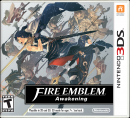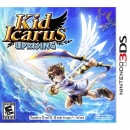| yushire said: yeah we knew arcades have similarities with casual games BUT... if you seen the technologies of videogame cnsoles then and today we all know why videogames at that time kept simple and sometimes repititive and addictive at the same time. I doubt no one can do a epic singleplayer campaign of Medal of Honor and Call of Duty during the NES or even the SNES times. Arcades and core singleplayer experience are same addictive but at the same time different |
Most people aren't buying Call of Duty for the epic singleplayer campaigns, though. They're buying it for the multiplayer.
The online multiplayer in Call of Duty isn't unlike an arcade experience. There's constant action, competition with other people, it's addictive, and relatively pick up and play (it's at least the easiest shooter out there). The core gameplay is simple enough - point and shoot.
Nearly all the best selling games this gen have some sort of arcade gameplay. There are exceptions, of course, but most of them are games that generally fill a very broad job. Nintendogs is a pet simulator, Brain Age "keeps your brain active," Wii Fit motivates you to excercise, etc. The gameplay for these games isn't so important, so much as the job they're fulfilling.
As for the blog you linked, he gives some terrible examples. His blaming KQ6's failure on arcade-action is unfounded, then he goes as far as to use VGC's data on Zelda (aLttP) against Layton, when we only have Japan data for Zelda. Against 2D Zelda, Layton was outsold in Japan and is absolutely killed in America, Others is the only region in question (which Nintendo hadn't gotten hold of until recently). He points to games like Phoenix Wright as proof of satisfied customers, when it sells like peanuts, then somehow concludes "puzzles and stories" being more universal than "weapons and enemies", which he has no proof of. Sales say otherwise.
Note that there are really two different kinds of "puzzle" games, one being far more popular than the other. There's the "action" type, which is based on quick thinking, as it basically gives you a task to figure out in given a time limit. See Tetris, Bejeweled, Brain Age, etc. Basically the best selling puzzle games, all of which actually do have arcade-like gameplay.
Then there's the slower, type, where you can take all day to figure out. These are not as popular, and seem to be the stuff the blogger is promoting, as they're loaded in the story games (Layton, Phoenix Wright, etc).




















